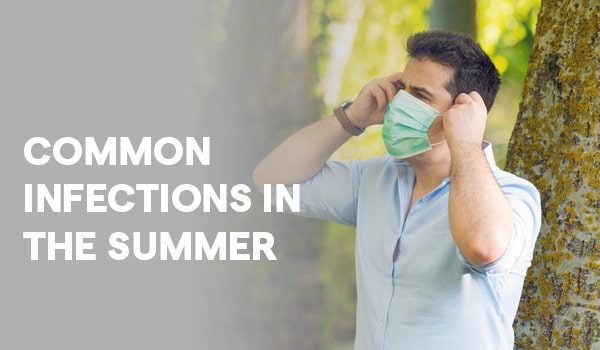
Chicken Pox
Chickenpox is a highly contagious viral infection that is most common in children. It is characterized by an itchy rash of red spots that progress to blisters, which then crust over and heal. The virus is spread through respiratory droplets or direct contact with the rash. While most cases of chickenpox are mild, it's important to note that it can lead to complications in specific individuals, especially adults, pregnant women, and newborns.
Chickenpox is caused by the varicella-zoster virus, which is highly contagious and spreads through respiratory droplets or direct contact with an infected person's rash. The theory has been verified by research conducted by India's National Centre for Disease Informatics and Research (NCDIR). The study discovered that the varicella-zoster virus, the cause of chickenpox, was highly infectious among children under the age of 15.
The virus can also be transmitted through tiny airborne particles from an infected individual's blisters. Once infected, the virus remains in the body and can reactivate later in life, causing a different condition known as shingles.
Chickenpox Symptoms
Measles
Measles is another highly contagious viral infection that can spread rapidly, especially in crowded areas. The World Health Organization (WHO) advises that measles is a highly infectious respiratory virus transmitted by coughing and sneezing.
The virus is transmitted through respiratory droplets and is known for its characteristic red rash. The complications of measles can be severe, including pneumonia and encephalitis. It's crucial to note that vaccination is the best protection against measles, a highly effective measure for preventing the disease.
Measles is caused by the highly communicable virus, which is spread through respiratory droplets from coughing and sneezing. When an infected person breathes, coughs, or sneezes, the virus can remain suspended in the air or land on surfaces for up to two hours. If someone who is not immune to the virus breathes the contaminated air or touches the infected surface and then touches their face, they can become infected.
Measles Symptoms
Measles symptoms can be quite uncomfortable and painful. Additionally, measles can lead to complications such as ear infections, pneumonia, and, in severe cases, encephalitis.
Meningitis
Meningitis is an infection of the protective membranes of the brain and spinal cord. While it can occur at any time of the year, certain types of bacterial meningitis are more common in the summer. The main cause of bacterial meningitis is Neisseria meningitidis, also known as meningococcus. This bacterium is spread through respiratory and throat secretions, such as saliva or mucus. Close contact with an infected person, such as living in close quarters or sharing utensils, can increase the risk of transmission.
A viral or bacterial infection usually causes meningitis. However, it can also be caused by fungal infections, parasites, or non-infectious factors such as chemical irritation, drug allergies, or some types of cancer.
Meningitis Symptoms
Treatment
The treatment for the common infections varies depending on the specific condition. For chickenpox, the focus is primarily on relieving symptoms such as fever and itching and preventing the spread of the virus. Medications manage fever and discomfort, while calamine lotion or antihistamines can help alleviate itching. In some cases, antiviral medications may be prescribed for individuals at higher risk of complications. Measles treatment primarily involves supportive care, such as rest, fluids, and fever-reducing medications.
Vitamin A supplementation is also recommended for individuals with measles, especially in areas with prevalent malnutrition. Meningitis treatment requires prompt medical attention, as the condition can be life-threatening. Antibiotics are typically administered for bacterial meningitis, and corticosteroids may be used to reduce inflammation.
If you notice any of the symptoms mentioned for chicken pox, measles, or meningitis in yourself or your loved ones, it's crucial to seek medical attention promptly from the best medicine hospital, this will help in early diagnosis and treatment of the infection that is essential in managing these infectious diseases and preventing potential complications.
Book an appointment with Sir Ganga Ram Hospital for a thorough evaluation and proper medical care.